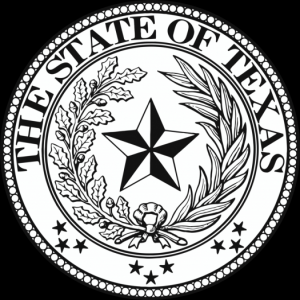The Texas Legislature has passed a new statute creating a statewide trial level business court, to be known as the Business Court. The House just voted late this afternoon to pass the Senate amended version of House Bill 19.
A copy of the full Business Court statute can be found here. There are some interesting nuances to the legislation that I leave to the reader.
Texas lawyers David Cabrales and Rebecca Jordan provide a detailed synopsis of the new statute, here.
The legislation now goes to the Governor, who has been a strong supporter of business court legislation and will undoubtedly sign this into law.
An Appellate Business Court
Moreover, one provision of the new Business Court statute creates exclusive jurisdiction in the newly created Fifteenth Court of Appeals for intermediate appeals from the Business Court. Thus, Texas, de facto, has created the first appellate level specialized business court in the United States. (In 2020, a new Pennsylvania law encouraged its Superior Court, an intermediate appellate court, to create a specialized commerce court docket, but this has not happened.)

Taking a general overview, the new statute includes the following sections:
• Definitions (which are intertwined with explaining the Business Court’s jurisdiction)
• Constitutional section providing legislative authority to create the statute
• Explanation of the Business Court’s geographical scope (being statewide, but separated into 11 regions, and the timing for those regions to become operational)
• Jurisdiction and Powers (listed case types within the court’s jurisdiction, large minimum amounts in controversy for most case types to achieve jurisdiction, list of case types outside the court’s jurisdiction, the concept of supplemental jurisdiction over some non-business court cases)
• Judicial powers
• Initial filings and bringing cases into the Business Court, or removing them from the Business Court, where jurisdiction is not proper (also addresses proper venue)
• Appellate jurisdiction in the newly created Fifteenth Court of Appeals
• Judicial qualifications
• Judicial appointment process for all Business Court judges, and means of selecting administrative presiding judge
• Judicial vacancies, salary, removal, disqualification and recusal, and the use of visiting judges
• Parameters for jury trials
• Written opinions (“The supreme court shall adopt rules for the issuance of written opinions by the business court.”)
• Court locations and staffing
• Issuing an annual report on the Business Court
• Rules of civil procedure to be adopted by the Supreme Court to address “(1) the timely and efficient removal and remand of cases to and from the business court; and (2) the assignment of cases to judges of the business court.”
• Rules of practice and procedure may be adopted by the Business Court itself “consistent with the Texas Rules of Civil Procedure and Texas Rules of Evidence.”
Timing of Court Becoming Operational and Potential Challenges
While the legislation takes effect on September 1, 2023, the business court itself does not become operational until September 1, 2024, at the earliest.
There are other parts of this new legislation that are not addressed above, in different Sections of the bill. One addresses potential constitutional challenges. Section 4 provides:
(a) The Texas Supreme Court has exclusive and original jurisdiction over a challenge to the constitutionality of this Act or or any part of this Act and may issue injunctive or declaratory relief in connection with the challenge.
(b) If the appointment of judges by the governor to the divisions of the business court under Section 25A.009, Government Code, as added by this Act, is held by the Texas Supreme Court as unconstitutional, the business court shall be staffed by retired or former judges or justices who are appointed to the court as provided by Section 25A.014, Government Code, as added by this Act.
Under Section 25A.014, entitled “Visiting Judge”: “(a) A retired or former judge or justice who has the qualifications prescribed by Section 25A.008 may be assigned as a visiting judge of a division of the business court by the chief justice of the supreme court. A visiting judge of a division of the business court is subject to objection, disqualification, or recusal in the same manner as a retired or former judge or justice is subject is subject to objection, disqualification, or recusal if appointed as a visiting district judge.”
It remains to be seen whether challenges will be raised under Texas’ Constitution over provisions that the business court judges will be appointed by the Governor, with the advice and consent of the Senate, rather than elected. This issue has been raised during the legislative process, and it appears likely the issue will be raised to the Texas Supreme Court. See, e.g., David Coale, Proposed ‘business court’ isn’t worth the constitutional risk, Dallas Morning News (April 22, 2023). Obviously, the legislators supporting this new law, and the statute’s proponents, believe that it is constitutional, and can raise authority to support their position.
In light of this new business court legislation, I’ve again updated my business courts map, which can be found here.
